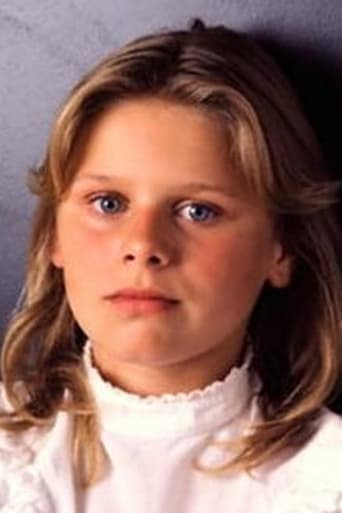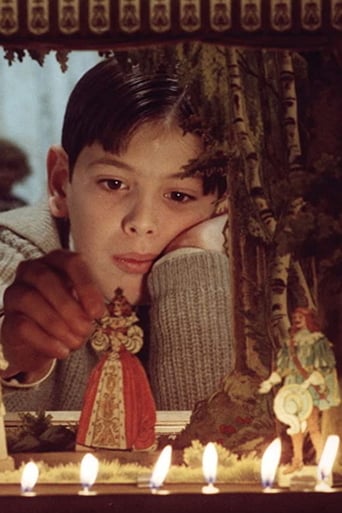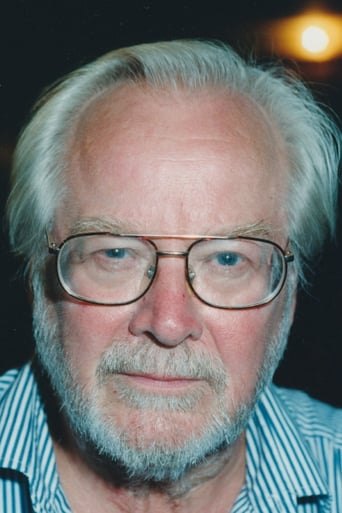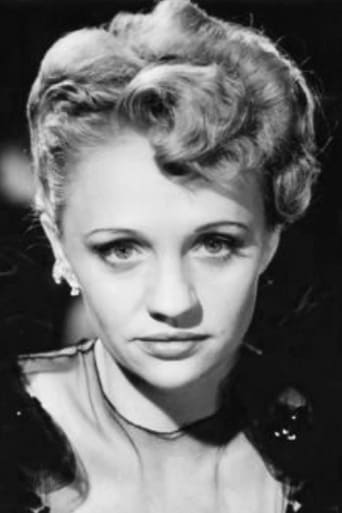classicsoncall
Staying with this film for the first hour and a half or so was an exercise in extreme patience - nothing happened. It was as if you were an observer at a family holiday dinner without participating in the meal. It was simply boring beyond reason, and if I weren't steadfast about watching a film in it's entirety in order to review it, I would have given up at the half way point.And then something interesting happened. Unlikely as it was that the widow Emilie (Ewa Froling) would have married that skunk, the Bishop (Jan Malmsjö), that's exactly what happened, setting up a nasty little adventure between the Bishop and the title characters. There was a point in the story I would have gladly handed Emilie or Alexander (Bertil Guve) a bottle of rat poison to take out that monster. Not to mention that maid Justina (Harriet Andersson) who couldn't help herself snitching on the young siblings. Couldn't you have just strangled her?So it wasn't entirely a waste of three hours, but quite honestly, the best thing about this picture for me were the lavish and ornate sets, and the cinematography that brought that richness out in detail to the audience. Reflecting on the title of the movie, I had to wonder why it wasn't simply called 'Alexander' since he turned out to be the principal player. Little Fanny was cute enough but without a whole lot to do and wasn't on screen very much. My best recommendation - start watching the film about half way into the story and you'll get most everything you need to know about in the young life of Fanny and Alexander.
ElMaruecan82
"Fanny and Alexander" starts with a lavish Christmas reunion of the same epic scale and narrative value as the wedding party in "The Godfather". It then proceeds to an untimely death that put all the family in shock. When mourning time is over, the widow resigns to find a stronger role model for her children, she marries a rigid bishop and then life flies over the darkest and toughest pages of the Family book, punctuated with strange supernatural encounters and deep metaphysical wanderings. Eventually, death shows up again, natural or not, and the movie concludes with another family reunion, celebrating two births, and through them, life with its share of joy, sadness, silences, cries, whispers… and wild strawberries. It is a credit to Ingmar Bergman's visionary practicality to make a film about a bourgeois family, spanning a relatively short lapse of time, yet containing a plot whose existential implications could cover countless pages of philosophical essays. Life and death, their meanings or meaninglessness, have never been as fully approached without ever exuding "intellectual" vibes. It is indeed extraordinary that such a film would also manage to tell an entertaining and captivating family drama's story. And no less extraordinary that the film, deprived from more than one-hour and half, would still manage to maintain its relevance and style (almost) intact and be such a universally praised masterpiece. But who said Ingmar Bergman was an ordinary director? This is the work of a lifetime and if Bergman really decided to make it his testimony film, he couldn't have found a better way to conclude his body of work. There's more than a story about children in "Fanny and Alexander", the title is rather misleading on that level, the film, set at the dawn of the 20th century, circa Bergman's childhood, shows the very world that shaped the tormented mind of the soon-to-be cinematic genius, a world of contradictions where lust is forbidden but temptation everywhere. There is this eternal presence of God, from the joyful Christmas celebration to the grim discipline of an overzealous Bishop; but the ultimate paradox of Bergman's movie is that it's less God's nonexistence than his silence that calls for doubt and anger. God is Bergman's most defining antagonist.And in this lost battle, each one finds his way. Like "The Godfather", the central Family, the Ekdahls, is a fascinating mix of personalities: from a gentle matriarch who keeps on her respectable facade, to her sons, they all have a different approach to life. Gustav Adolf, a baker and hedonistic man, seizes the day and enjoys flirting and partying with maids, with the surprisingly progressive consent of his wife. Carl is the second son, a failed professor who's responsible for perhaps the most heart-wrenching loser's monologue I've ever seen in a film. He's disgusted by his failure and even the consolations' attempts of his well-meaning German wife are welcomed by hatred and disdain, this is a well-educated man who've lost his faith on life and goes through it, chained to the certitude of his own mediocrity.The third son is Oscar, he manages a theatrical troop with his beautiful wife Emilie (Ewa Fröling), also an actress along with their children, Fanny and Alexander. The man is worn down by the weight of stress and after Christmas, he's victim of a fatal stroke. Alexander can't stand the sight of his father dying, he hides under a table and utters curse words during the funeral; this is a child desperately hanging on his childhood with a rather adult tenacity. But his greatest challenge comes when the existentially lost Emilie, chooses the austere yet handsome Bishop (Jan Malmsjö)… as a husband, finding in this man the serene connection to reality she felt lacking in her life. Then starts the soul-wrestling relationship between the Bishop and Alexander, confronted to the tyranny of God's rules, and their punishments. You could think Bergman, as a son of a rigid Lutherian, took his autobiographical revenge, but the Bishop is less a villain than a tragic man, lost in the illusion of his own authority being endorsed by God. Indeed, from the chess game in "The Seventh Seal" to the agony in "Cries and Whispers", God is never as present as during painful moments… and ironically, life is never as exhilarated as when Death is coming. But there's a different tone in this film, actually more serene, there's a sort of consensus regarding the whole illusion of life, no one is fooled. Even the dead ones aren't of any help. Only the grandmother's Jewish lover (Erland Josephson) has a foot in each world and connects mysticism and reality, as if they finally could reconcile, as if illusion was either the lesser of two evils or a survival game. And this might be why the film, for all its complexity and dramatic undertones, solved its two crucial plot points with "lousy" Deus Ex Machina, what an ironic but so well-put nose thumbs to us, purist and cinematic rigorists. Maybe it is a way to show that God stopped to be an antagonist, and he would always have the final word, but finally, with Bergman's consent. And here's the genius closing the arc of his religious torments like "Scenes from a Marriage" did for the theme of infidelity. And on that level, the best advice I could give is: do yourself a favor and watch the full version just like for the "Marriage" masterpiece. Surely, one hundred extra minutes of Bergman's epitaph movie is an offer a fan wouldn't refuse. And as a fan, I'll conclude the review by saying that Begman is certainly the most original and compelling director, too unfairly associated with black and white intellectual movies while there was more than that, there was human condition with style à la Da Vinci and Shakespearean intensity, he's perhaps the greatest artist of Cinema, a cinematic God with God as a centerpiece.











